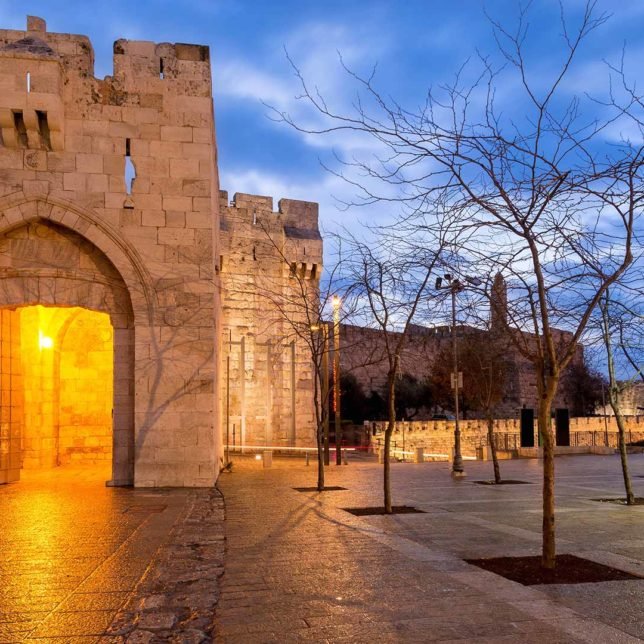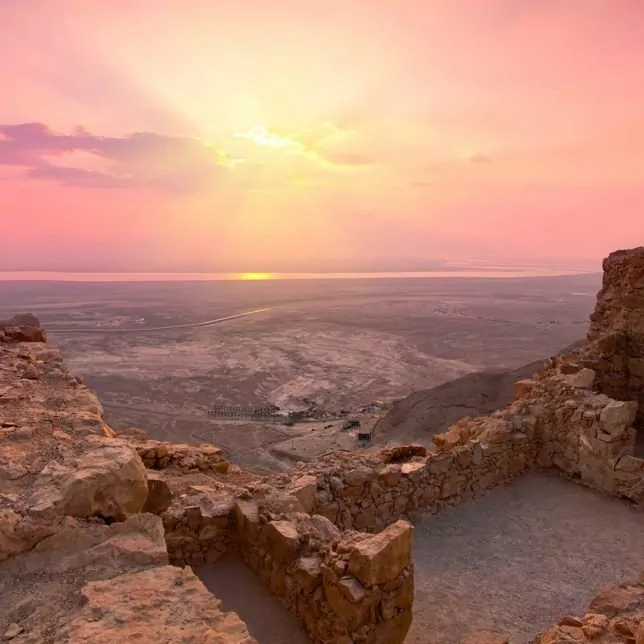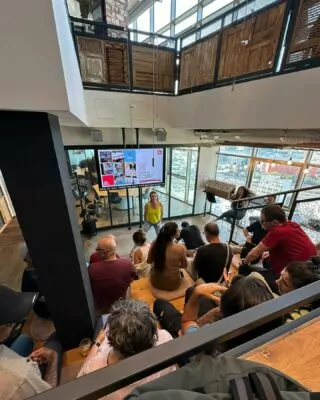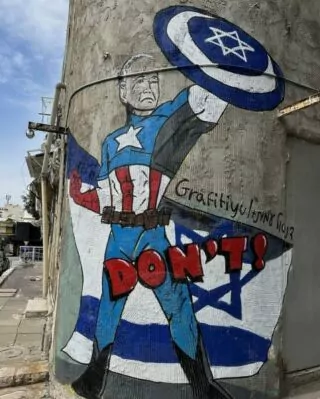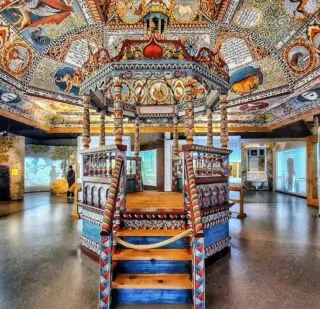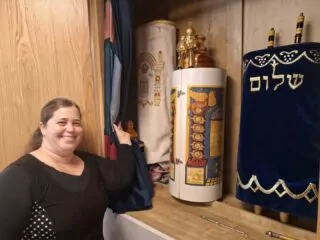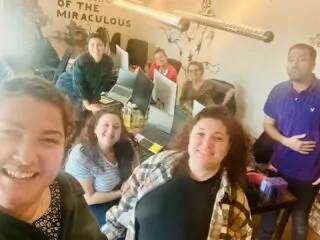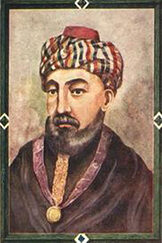
Hasdai Ibn Shaprut 915-970
Ibn Shaprut was a renowned scholar, physician, diplomat, and patron of the sciences who lived during the period of Abd-Ar Rahman III, the Caliph of Cordoba. Thanks to his knowledge of Hebrew, Arabic and Latin he was able to translate medical books to Arabic and is said to have discovered a universal panacea called AlFaruk. Ibn Shaprut was appointed physician to the Caliph and served as Minister of Foreign Affairs, involved in developing relationships throughout Spain and with the Byzantine Empire. Under his influence and support Hebrew poetry and scholarship flourished in Spain, marking the beginning of a Golden Age.
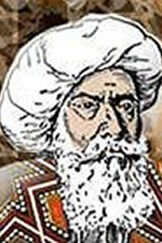
Shmuel Hanagid Ibn Naghrillah 993-1056
Shmuel Hanagid was one of the most politically influential Jews in Muslim Spain. He arrived in Malaga in 1013 and soon became a central figure in Granada’s affairs. He represented the Jews to the authorities, the leader of the Granada Muslim army in many battles and the vizier. He’s also known for his poetry which covered a vast range of topics, including military affairs. He founded a Yeshiva and is the author of Hilchot Hanagid, a digest of Talmudic laws.
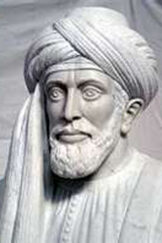
Solomon Ibn Gabirol 1021-1070
Ibn Gabirol was orphaned at a young age. He started writing Hebrew poetry as a boy and quickly reached fame. He studied the Talmud as well as astronomy, geometry and philosophy and mastered Hebrew and Arabic. Ibn Gabirol had an ambivalent relationship with his wealthy sponsors and as a result of his criticism of one of them he was banished from Saragossa and spent much of his life in Granada. His most famous book is Mekor Chayim, a popular philosophical work which he wrote in Arabic and which was translated into Latin.
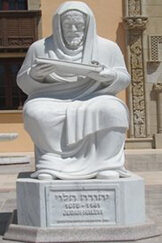
Yehuda Halevi 1075-1141
Halevi lived much of his life in Cordoba and is considered to be one of the greatest Hebrew poets, renowned for his religious and secular poems. He mastered biblical Hebrew and Arabic as well as the Talmud, physical science, philosophy and metaphysics. His famous book The Kuzari foreshadowed the philosophy of Zionism and Jewish Nationalism. Although he deeply loved Spain, he was convinced that Jews should immigrate to Palestine to ensure the coming of the Redemption; he, however, never managed to do this.
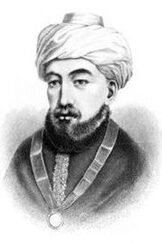
Maimonides 1135-1204
Born as Moshe Ben Maimon and known as the Rambam, “Rabbeinu Mosheh Ben Maimon,” Ben Maimon was one of the most influential Torah scholars and physicians of the Middle Ages. He was a rabbi, physician and philosopher who moved from Spain to Morocco to Egypt due to anti-Semitic attacks by certain Muslim groups. His writings on Jewish law and ethics made him one of the most foremost rabbinical arbiters in Jewish history and won him the status as a bona fide exponent of the Oral Torah. He was the head of the Jewish community in Egypt, where he died in 1204, but his remains were taken to Tiberias where he is buried.
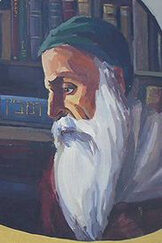
Nahmanides 1194-1270
Rabbi Moses ben Nahman [Ramban] was a leading medieval Jewish scholar, a rabbi, philosopher, kabbalist and Biblical commentator who lived in Girona. While accepting the Rambam’s contributions to Jewish thought, he opposed his rational approach. He became Chief Rabbi of Catalonia in 1264 but was forced to participate in a disputation against a Christian at a time of increasing anti-Semitism and so immigrated to the Land of Israel, where he died in 1270.
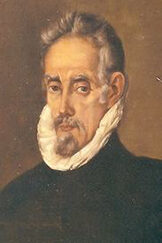
Abraham Senoer 1412-1493
Seneor was a very influential banker, tax farmer and rabbi, who had a close relationship with Queen Isabella and was the central Jewish leader in Christian Spain. In 1492 he tried to persuade the monarchs to rescind the Edict of Expulsion but failed. He remained in Spain, converted to Roman Catholicism and changed his name to Fernando Perez Coronel. Long after his death in 1493 Senoer’s family continued to be one of Segovia’s most important families. His conversion was seen by the Jews and by many later Jewish historians as a major tragedy.
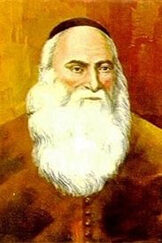
Don Isaac Abarbanel 1437-1508
Born in Lisbon to a distinguished Jewish family, Abarbanel devoted his early years to the study of Jewish philosophy. Thanks to his knowledge in financial matters he was employed by King Afonso of Portugal as treasurer but in 1483 was forced to flee to Toledo where he subsequently published an extensive biblical commentary. Until 1492 he served in the house of Castile and carried out contracts to the satisfaction of Queen Isabella; even so, she demanded that he either convert or be expelled with the rest of the Jews. It is said that Abarbanel spent large sums of money to bribe the Spanish Monarchy to permit the Jews to remain in Spain but only managed to get the date of the expulsion extended by two days. He left for Naples and worked there at the service of the King. In 1503 he settled in Venice and was the negotiator of a commercial treaty between Portugal and the Venetian Republic.
J2 STUFF.
We have everything you need to know before you go. Check out our Instagram my_j2adventures for cool updates and interesting tidbits.
The J2 App
available on the App Store & on Google Play.

START PLANNING LET’S EXPLORE.
Whether you have a journey in mind, want to join a featured trip, or simply want to explore, drop us a note. We work really hard to be a loved travel company that delivers amazing and memorable experiences. So please do not be surprised when we say “yes” to every reasonable request you make!

